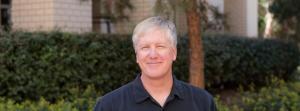Why is crime rising in Southern California?
April 2017
Crime rates in Southern California are rising, after years of declining. Why? Have government policies put criminals back on the streets? Are law enforcement officers hesitant to pursue criminals because of heightened public scrutiny? Criminology, Law and Society Professor Charis Kubrin discusses with Anaheim Police Captain Joe Vargas.









